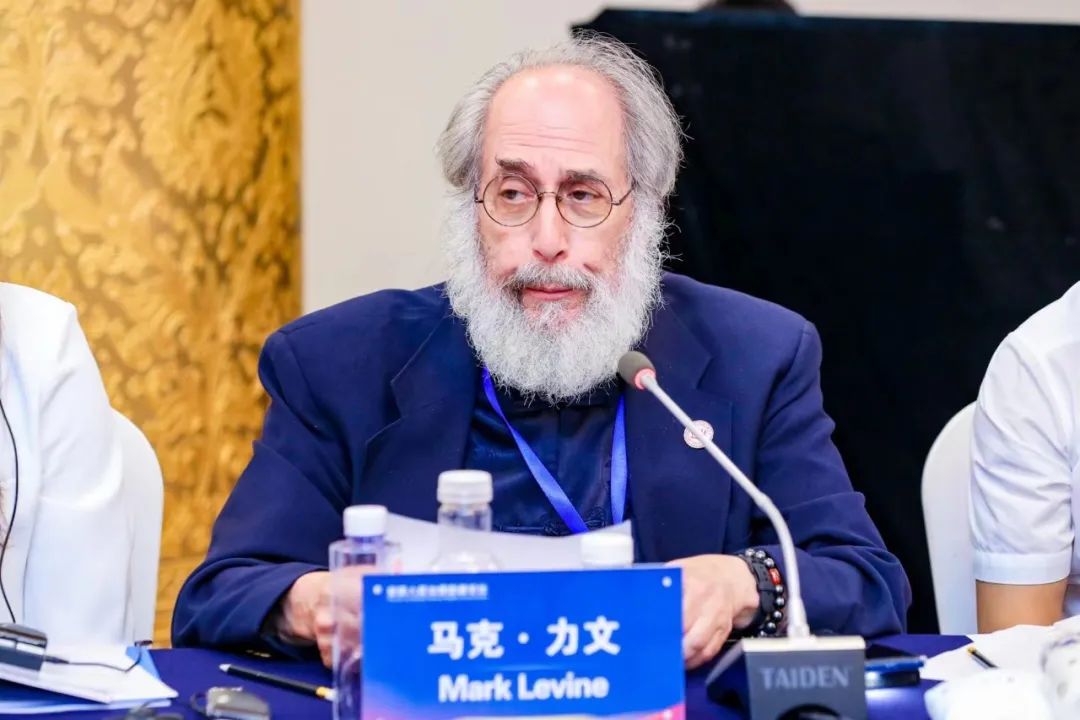The Global Development Initiative: The Juncture of Theory and Practice on the Road to Building a Fairer and more Peaceful World
Mark H. Levine

My name is Mark Levine, and I am an American sociologist who came to China in 2005. I have been teaching in Beijing at Minzu University of China for the past sixteen years.
While I have taught a number of courses during my years in China, as far as my teaching goes, I am probably best known for teaching Chinese university students to do public speaking and to tell the world about China in English. A common lesson I teach my students is that, whenever they can, they should make their presentations personal, including stories about their experience. One of the most important reasons for this is that it can make their presentation unique. In an effort to avoid being accused of saying one thing and doing another, I would like to begin by telling a little more about myself.
I have a sister who is five years younger than I and on more than one occasion when we were young, when our parents, our mother in particular, would decide something about what we could or could not do, one of us would complain, “that’s not fair.” Although that was many decades ago, I can hear my mother’s voice today as clearly as I could at the time. “Who ever said that the world was fair? The world is not fair. Do what I told you.” Although we didn’t understand her comments about fairness, we would just take her at her word and assume she was right until the next time we felt the need to complain.
Frankly, it wasn’t until years later when I was a college student in the late 1960’s that I began to understand. This understanding came both from my academic studies in sociology as well as through looking at what was happening in the US and what my country was doing in various places in the world. My understanding of the truth of my mother’s words continued to grow when I wrote my doctoral dissertation on the rise of the Nazi Party in Germany in the 1930’s. My mother was right, the world is unfair as any fair-witness or objective person could see.
After completing my Ph.D. and having a couple years of university teaching under my belt, I left the academic world and became what decades later came to be known as a public sociologist. I left the so-called “Ivory Tower” of university life and became a full-time volunteer labor and community organizer. From 1976 to 2005, when I came to China, I worked and lived in some of the poorest communities in the US. And, if I thought the world was unfair before that, this view was confirmed and re-enforced. Many times a day every day for those nearly 30 years.
One last thing before we get back to the topic at hand, the Global Development Initiative.
Last week as one of my students was giving a presentation about the importance of government support for education, she said that the role of government is to “reduce or eliminate that unfairness for its citizens and others who live in the country.” I agree with that and the reason for how I spent those 30 years of my life is because that was not being done in the US.
Despite my agreement with her statement, I actually expanded it by adding, that this process of reducing unfairness within a single country cannot be done at the expense of other countries, and to the greatest extent possible should aid other countries in doing the same.
Now that brings me back to China’s Global Development Initiative.
In today’s world there are many problems and, as an example of that “unfairness,” not every country is equally able to handle them. In addition to climate change, we see poverty, war, lack of development, just to name a few. China knows of these problems first-hand as anyone familiar with the latter-half of the 19th and first-half of the 20th centuries can recognize this. But, with correct leadership and a determined people China has made great advances. The one that probably impresses me the most is the eradication of absolute poverty, which is an increasingly common problem today even in what is referred to as the developed world.
It is also important to understand that China did not do this alone but was aided by other countries whose objectives were not to control China and maintain it as one of the countries in the world that is treated “unfairly,” but to help.
As a result of China’s advance, the People’s Republic of China, can continue to expand its contributions to other countries, contributions that began when China aided the independence struggles of many African countries as a first step in combatting their own condition of unfairness. So even during its infancy the PRC recognized that if unfairness exists then everyone will suffer from it.
The Global Development Initiative is an idea, but it is not merely an idea as China’s Belt and Road Initiative, BRICS, AIIB and recent successful efforts at taking a lead role in international diplomacy and many other things are the material manifestations of that idea.
Let me close with the words of Chinese President Xi Jinping in his November 2021 address as a special session to commemorate the 30th anniversary of China-ASEAN relations.
We should advocate peace, development, equity, justice, democracy and freedom, which are the common values of humanity, increase exchanges and mutual learning between civilizations…
Source: International Journal of Talent Exchange



